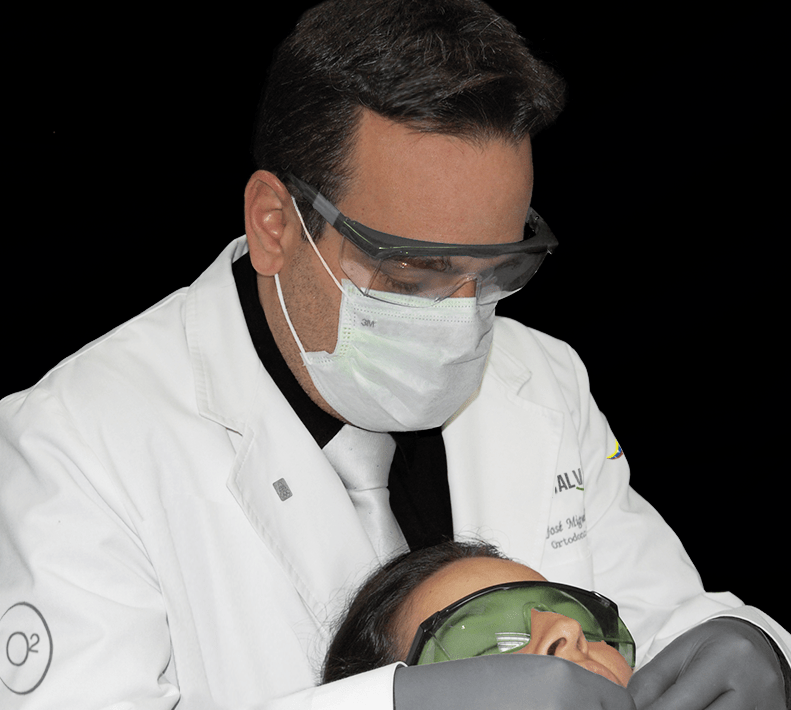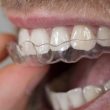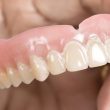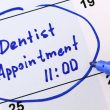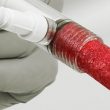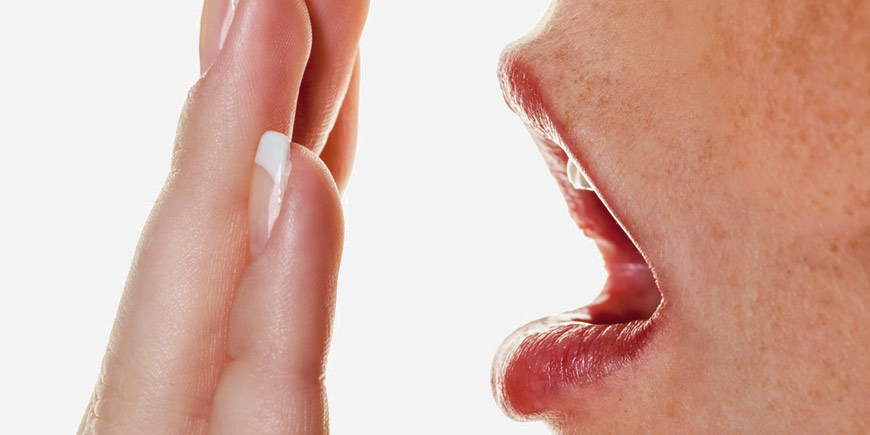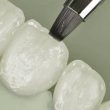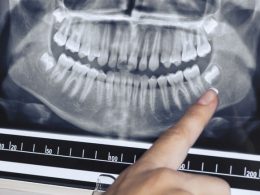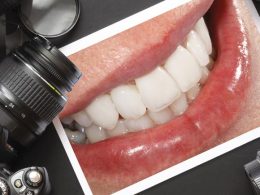Table of Contents
Breath odor affects everyone at some point. Bad breath is also known as halitosis or fetor oris, and it is defined as a set of unpleasant odors emanating from the mouth.
That odors can come from the gums, teeth, tongue, mucosa or as a result of an underlying health problem, and can be a temporary or a chronic condition. According to the American Dental Association (ADA), at least 50 percent of adults have had halitosis in their lifetime and 1 in 4 people suffers from it constantly.
A very particular characteristic of this condition is that it becomes difficult to detect by the person who suffers from it. In general, are the others who perceive the odor, under the complete ignorance of the person affected. Thus, it may take months, or even years, for someone to gain courage and warn he or she of the situation.
The most recommended thing, to get to know about bad breath on time in case of suspicion and avoid being the center of ridicule and bad comments, is to request the sincere collaboration of someone who is your absolute trust. However, you should be the one asking, do not wait for the other to take the initiative. Although it is also difficult to perceive, bad breath is usually accompanied by a slight but constant bad taste in the mouth. This may be a good clue!
Halitosis can cause significant psychological distress and is the third most common reason that people seek dental care, after tooth decay and gum disease.
Simple home remedies and lifestyle changes, such as improved dental hygiene and quitting smoking, can often remove the issue. If bad breath persists, however, it is advisable to visit a Doctor to check for underlying causes.
Potential Causes of Halitosis
It is without doubt that the most common reason for bad breath is oral hygiene deficiencies.
Brushing and flossing ensure the removal of small particles of food that can build up and slowly break down, producing odor. A film of bacteria called plaque builds up if brushing is not regular. This plaque can irritate the gums and cause inflammation between the teeth and gums called periodontitis. Dentures that are not cleaned regularly or properly can also harbor bacteria that cause halitosis.
However, other situations can also be to blame:
- Tobacco Tobacco products cause their own types of mouth odor. Additionally, they increase the chances of gum disease which can also cause bad breath.
- Food The breakdown of food particles stuck in the teeth can cause odors. Some foods such as onions and garlic can also cause bad breath. After they are digested, their breakdown products are carried in the blood to the lungs where they can affect the breath.
- Dry Mouth Saliva naturally cleans the mouth. If the mouth is naturally dry or dry due to a specific disease, such as xerostomia, odors can build up.
- Crash Diets Fasting and low-carbohydrate eating programs can produce halitosis. This is due to the breakdown of fats producing chemicals called ketones. These ketones have a strong aroma.
- Drugs Certain medications can reduce saliva and, therefore, increase odors. Other drugs can produce odors as they breakdown and release chemicals in the breath. Examples include nitrates used to treat angina, some chemotherapy chemicals and some tranquilizers, such as phenothiazines. Individuals who take vitamin supplements in large doses can also be prone to bad breath.
- Mouth, Nose and Throat Conditions Sometimes, small, bacteria-covered stones can form on the tonsils at the back of the throat and produce odor. Also, infections or inflammation in the nose, throat or sinuses can cause halitosis.
- Foreign Body Bad breath can be caused if the person has a foreign body lodged in their nasal cavity, especially in children.
- Periodontal Disease Periodontal disease happens when you do not remove plaque promptly from teeth. Over time, plaque hardens into tartar. You cannot remove tartar by brushing, and it can irritate your gums. Tartar may cause pockets, or small openings, to form in the area between the teeth and gums. Food, bacteria, and dental plaque can collect in the pockets, causing a strong odor.
- Chronic Systemic Diseases Some cancers, liver failure and other metabolic diseases can cause halitosis, due to the specific mixes of chemicals that they produce. Gastroesophageal reflux disease can cause bad breath due to the regular reflux of stomach acids.
- Ketoacidosis When the insulin levels of a person with diabetes are very low, their bodies can no longer use sugar and begin to use fat stores instead. When fat is broken down, ketones are produced and build up. Ketones can be poisonous when found in large numbers and produce a distinctive and unpleasant breath odor. Ketoacidosis is a serious and potentially life-threatening condition.
- Bowel Obstruction Breath can smell like feces if there has been a prolonged period of vomiting, especially if a bowel obstruction is present.
- Bronchiectasis This is a long-term condition in which airways become wider than normal, allowing for a build-up of mucus that leads to bad breath.
- Aspiration Pneumonia A swelling or infection in the lungs or airways due to inhaling vomit, saliva, food or liquids.
How to Face the Problem!
The most logical thing is to start by applying the simplest and most effective measures for the vast majority of cases. Improvements in oral hygiene techniques, some dietary restrictions, the elimination of unfavorable habits and professional dental care; usually end the problem of bad breath in more than 90% of people.
Here are the top 10 tips about it:
1- Brush and Floss More Often
Plaque, the sticky buildup on your teeth, collects bacteria that cause bad breath. Trapped food also adds to the problem.
Brush your teeth at least two or three times each day, and floss at least once. If you are concerned about your breath, do both a little more often. Do not overdo things, though. If you brush too hard you can wear down your teeth, making them vulnerable to decay.
2- Clean Prosthetics and Dentures
Any artificial item used in the mouth, including dentures, fixed bridges, orthodontic appliances and mouth guards; should be cleaned as recommended on a daily basis. Good hygiene prevents bacteria from sticking and accumulating on these devices. Changing the toothbrush every 2 or 3 months is also important to maintain the effectiveness of the technique.
3- Rinse Your Mouth Out
In addition to freshening your breath, a good mouthwash adds extra protection by killing bacteria. A fresh mint flavor can make you feel good, but make sure the mouthwash you choose actually kills the germs that cause bad breath. Do not just disguise the smell. Rinse daily with the rinse prescribed by your Dentist and truly fight the cause of your halitosis.
You can also help your breath if you swish your mouth with plain water after you eat. It can get rid of food particles that get stuck in your teeth.
4- Scrape Your Tongue
The grooves and fissures of the tongue usually host a large amount of smelly bacteria. To get rid of them, gently brush your tongue with your toothbrush.
If your brush is too big to comfortably reach the back of your tongue, try a scraper. They are designed specifically to apply even pressure across the surface of the tongue area and this removes bacteria, food debris, and dead cells that brushing alone cannot take care of.
5- Avoid Foods that Sour Your Breath
Onions and garlic are big offenders, but brushing after you eat them does not help. The substances that cause their bad smells make their way into your bloodstream and travel to your lungs, where you breathe them out.
The best way to stop the problem? Do not eat them, or at least avoid them before you go to work or see friends.
6- Kick the Tobacco Habit
Besides causing cancer, smoking can damage your gums, stain your teeth, and give you bad breath.
Over-the-counter nicotine patches can help tame the urge. If you need a little help, make an appointment with your Doctor to talk about quit-smoking programs or prescription medications that can help you give up tobacco for good.
7- Chew Sugar Free Gum
The bacteria in your mouth love sugar because they use it to make acid. This wears down your teeth and causes bad breath. Chew sugarless gum instead.
Gum stimulates saliva, which is the mouth’s natural defense mechanism against plaque acids, which cause tooth decay and bad breath.
8- Keep Your Gums Healthy
Gum disease causes bad breath. Bacteria accumulate in the periodontal pockets and generate a very bad odor. If you know you have or suffer from periodontal disease, you should make an effort in oral hygiene and visit your Periodontist more frequently, to maintain better control over it.
9- Moisten Your Mouth
You can get tooth decay and bad breath if you do not make enough saliva. If your mouth is dry, drink plenty of water during the day.
Chew sugarless gum or suck on sugar-free hard candy. Also try a humidifier at night to moisten the air in your bedroom.
10- See Your Dentist
If your bad breath continues despite your best efforts, make an appointment with your general Dentist. Only he will be able to determine exactly if the cause of your bad breath is of oral origin, and will be able to elaborate a personalized treatment plan that includes deep cleanings of your teeth and gums, teaching and supervision of adequate oral hygiene techniques and periodic professional controls that guarantee the durability of the results.
“Without a Doubt, the Most Frequent Reasons for Bad Breath Are Deficiencies in Oral Hygiene, Excessive Accumulation of Bacterial Plaque and the Presence of Dental Calculus”.
DENTAL TIP
Professional Treatment
We already know that the best method to reduce halitosis is good oral hygiene. This ensures that cavities are avoided and reduces the likelihood of gum disease.
It is recommended that individuals visit the Dentist for a check-up and cleaning twice a year. The Dentist may recommend a toothpaste that includes an antibacterial agent or an antibacterial mouthwash. Alternatively, if gum disease is present, frequent professional cleanings may be necessary to clear out the build-up of bacteria in pockets between the gums and teeth.
If, on the other hand, your Dentist checks that everything in your mouth is OK and that there is nothing in it capable of producing a bad odor, he will surely refer you to an Internist to diagnose and treat any disease or systemic condition responsible for the problem.
Save Thousands by Getting Dental Work in Venezuela!
On average, dental work in Venezuela is about a third the price of what you are used to paying at home, without a drop in the quality of care. All the process takes is just a little research and a few more logistics. In the “Dental Tourism” category of this same blog we describe all the considerations necessary to get dental care done in Venezuela.
The first thing you want to do is get a quote for the dental work you need done by our team. Most of the time, simply sending a few photos and X-rays to us will do just fine. The online consultation will provide a strong idea of what will need to be done, and will be able to provide you with a pretty close cost estimate for the dental procedures.
Through our WhatsApp or Email you can ask all the necessary questions about the proposed treatment and its details. DENTAL VIP has specially trained personnel for this function.
Once the quote is approved, you must indicate the date of your trip to corroborate the treatment viability in the selected period, ensure your accommodation and proceed with the purchase of air tickets.
Congrats! Now you are on your way to saving thousands by getting dental work in Venezuela.
